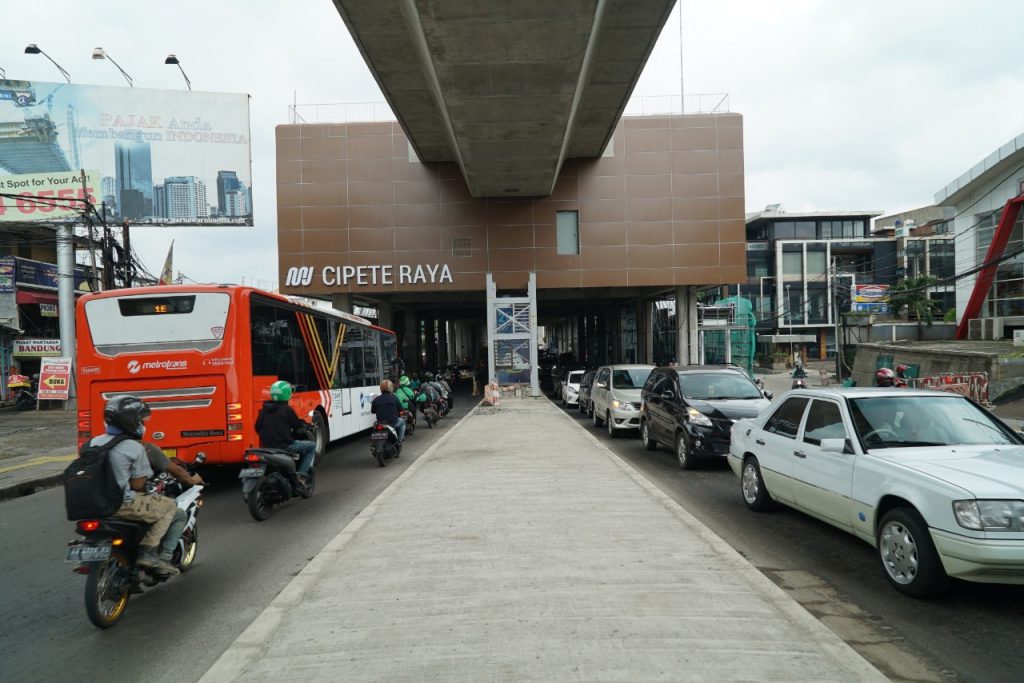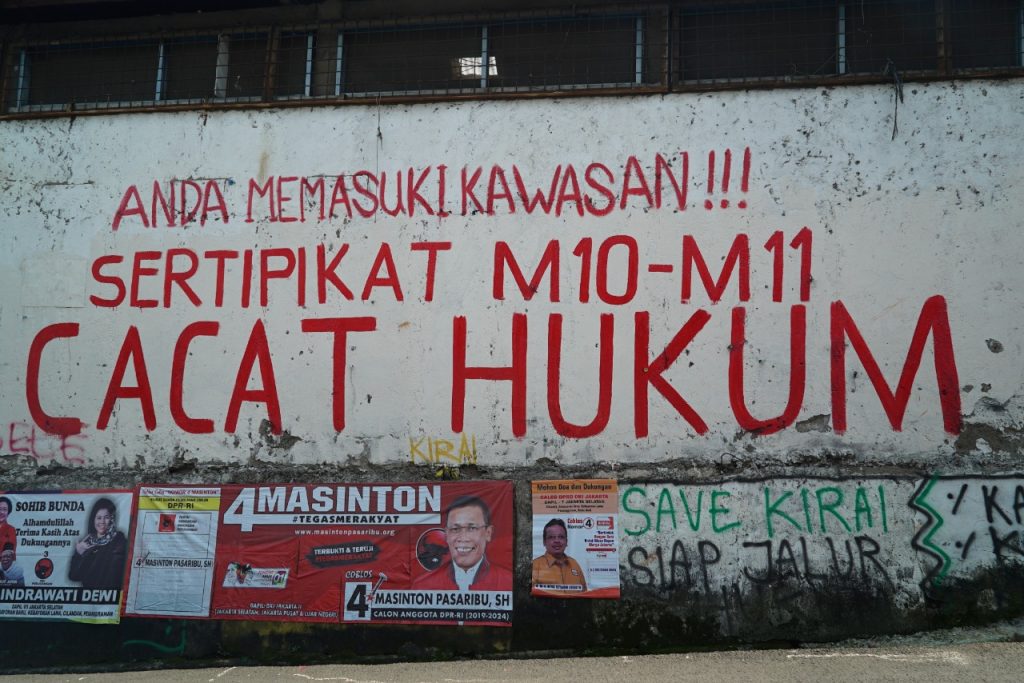木材生産を目的とする農林複合の可能性 /タンザニア東北部アマニ地域を事例に
対象とする問題の概要 アフリカ諸国では、高い経済成長を遂げたことで、人口が急激に増加している。家屋を建てた後に人々が求めるものは、ベッドやソファなどの家具であり、その材料には耐久性の優れた天然の広葉樹が用いられてきた。しかし、天然林への伐…

On April 2019, the first Indonesian Mass-Rapid Transit (MRT) opened commercially to the public in Jakarta. However, it was estimated that thousands of households living along the elevated train track and subway stations were displaced through 2012-2017.
This article aims to study evictions in Jakarta, where the severity of mega-displacement mainly attributed to infrastructure projects (Jakarta Legal Aid, 2016, 2017, 2018). It will investigate on Kampung Kirai which is located in the same area as the elevated MRT station Cipete Raya. The study shows that MRT project could potentially lead to gentrification, a process where people with higher socio-economic status capitalise the low property value since transit access is found to have positive effects on prices of residential properties and apartment rents (Bowes and Ihlanfeldt, 2001).

In Kampung Kirai, Cipete Raya, residents were constantly under threats of being evicted by a private developer who aims to transform their neighbourhood into a lucrative apartment building complex close to the MRT station. The residents in Kirai had lived for at least three generations, dating back during the colonial era. The area was inherited by three prominent Betawian Nyai (Ladies) who relied on the administrative management of the space to their mandor (foreman). At that time, it was the common practice for women not to be able to read and write and to rely on their property management to men. Hence, it was the foreman who held the colonial land certificate, known as eigmond verponding, and paid the land tax on behalf of the Ladies regularly.
During 1960s, Indonesian government established the Agrarian Law Constitution which encourages people to convert their verponding to the new land certificate with their resident card as a requirement. However, the lack of information and the ability to read had prevented the Ladies from acquiring the new land certificate. They continued to give money to their foreman to pay land taxes. It was believed that the money given to the foreman was corrupted by his family to convert the verponding into the new land certificate, Sertifikat Hak Milik (SHM) 10 and SHM 11. Many had suspected the involvement of private developer Lippo Group, who already acquired land close to the area and built Kemang Village, for its involvement in this counterfeit. At the same time, both the ladies and the foreman’s family had sold most of their land to urban migrants who came to Jakarta.
Today, approximately 355 households lived in 6.5 hectares of Kampung Kirai. Over the years, they could never be able to acquire any land right from the local government, even when they held resident card, paid land taxes, bills and voted during elections. Throughout the MRT development process, goons had aggressively threated the residents with weapons and violence to evict them. Opposing to this, the residents had launched legal investigations, heightened security and created murals depicting their protests in their kampung.
Their investigation uncovered many suspicious irregularities in the ownership of SHM 10 and SHM 1. For example, both certificates were once mortgaged to Bank Negara Indonesia (BNI) by the foreman’s family, yet when the family was unable to pay the debt, the local government issued new certificates for them, accepting lost as the main reason. Another peculiarity was found in the ownership of the certificate. It was stated that the landowners are five of the foreman’s children, however, the certificate was issued long after the foreman’s children were all deceased. Lastly, the land right was signed by a person whose position is not in charge of issuing certificates in the National Land Agency.
As seen in Kampung Kirai, transport systems may cause gentrification as they alter the social and spatial distribution of accessibility benefits throughout the city. I believe further studies are required to expand the analysis, specifically on the act of violence and policing in evictions cases, and urban activism led by the poor. At last, although land certificate manipulation encompassing bribery to the local government, residents and local public figures is uncommon in Indonesian, it is enticing to investigate further how the pattern is structured and ran on everyday life, as studies on this detail are rare.
【1】Bowes and Ihlafeldt, 2001. Identifying the impact of rail transit stations on residential property values. Journal of Urban Economics. 50(1), p1-25.
【2】Jakarta Legal Aid. 2016. Seperti Puing: Laporan Penggusuran Paksa di Wiliyah DKI Jakarta. Lembaga Bantuan Hukum Jakarta, Jakarta.
【3】---2017. Mengais di Pusara Janji: Laporan Penggusuran Paksa di Wiliyah DKI Jakarta. Lembaga Bantuan Hukum Jakarta, Jakarta.
【4】---2018. Masih Ada: Laporan Penggusuran Paksa di Wiliyah DKI Jakarta. Lembaga Bantuan Hukum Jakarta, Jakarta.
Copyright © 附属次世代型アジア・アフリカ教育研究センター All Rights Reserved.